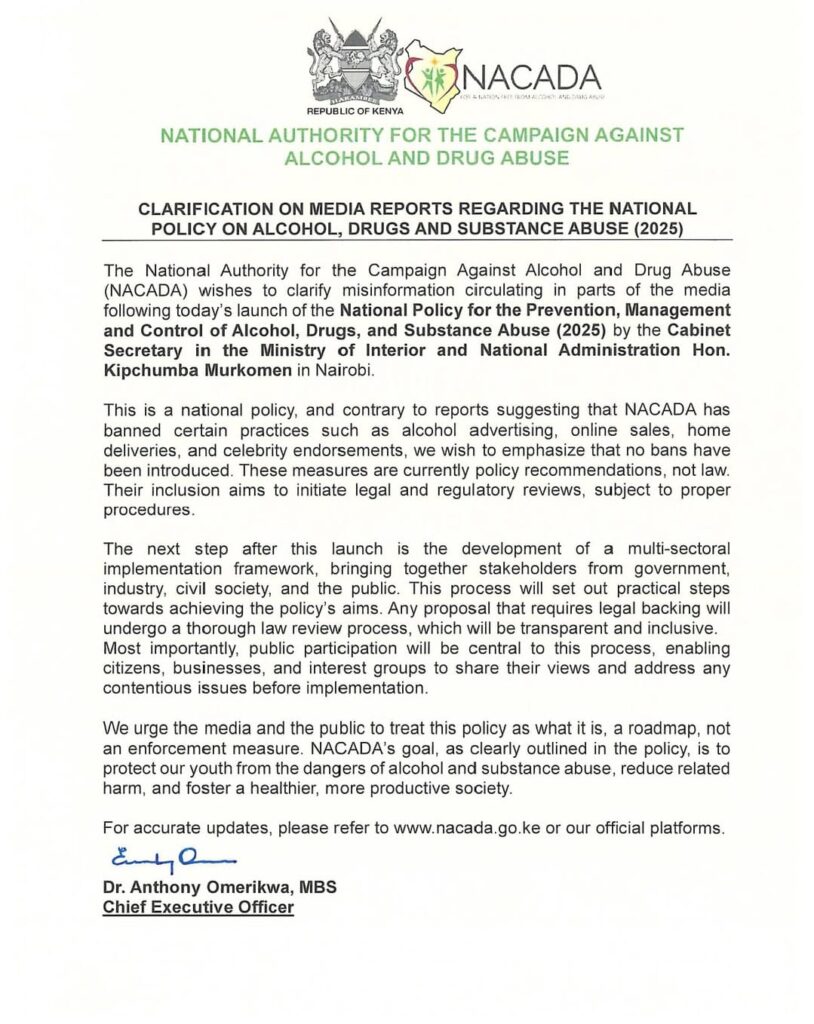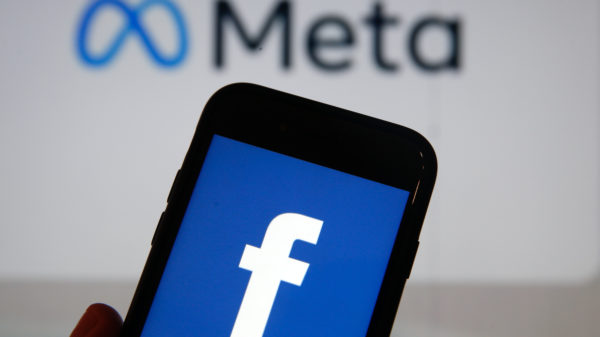The National Authority for the Campaign Against Alcohol and Drug Abuse (NACADA) has clarified that its newly launched national policy is a proposal and not law.
The NACADA was quick to changed this narrative after the policy received backlash from Kenyans immediately it was announced. NACADA’s Chief Executive Officer, Anthony Omerikwa, emphasized that the policy is “a roadmap, not a tool for enforcement.”

As reported by The Sauce, as part of its efforts to reduce alcohol consumption’s appeal, the policy stipulates that alcohol advertisements on audio-visual platforms will not be allowed between 5 a.m. and 10 p.m., including during foreign broadcasts. The policy also mandates that no advertisement should glamorize alcohol as a desirable lifestyle choice. Furthermore, the use of sports stars, influencers, and celebrities in alcohol marketing campaigns will be strictly prohibited.
In an effort to protect young people from exposure to harmful alcohol marketing, NACADA is proposing that only individuals over 25 years of age should be featured in alcohol-related advertisements. Moreover, the policy aims to restrict alcohol promotions that are specifically targeted at individuals under 21, and to outlaw any alcohol marketing within educational institutions.
The policy extends to cultural productions, calling for a ban on music, films, TV shows, and other performances that glorify or depict alcohol and drug use in a positive light across both print and electronic media. Additionally, the policy seeks to prevent alcohol brands from sponsoring sports teams, leagues, or national tournaments.
ALSO READ:
- NACADA boss Chipukeezy & Governor Sonko come to the aid of boxing champ Conje
- NACADA To Ban Influencers From Endorsing Alcohol And Increase Legal Drinking Age To 21
- Chipukeezy goes from stand-up comedian to NACADA Director
- Bad Bunny Refuses To Confirm Or Deny If He’s Dating Kendall Jenner
- Whoopi Goldberg Clarifies Sexuality After Raven-Symoné Said She ‘Gave ‘Lesbian Vibes’
On the retail front, NACADA is proposing stricter regulations for alcohol outlet licenses and operating hours, to be based on factors such as population density, ensuring better control over where and when alcohol is sold.










































